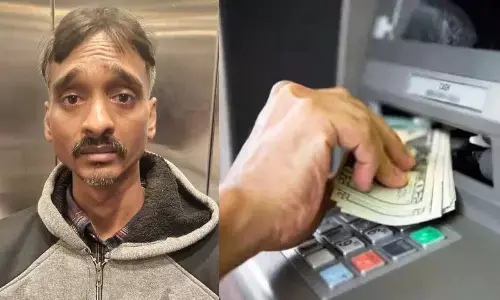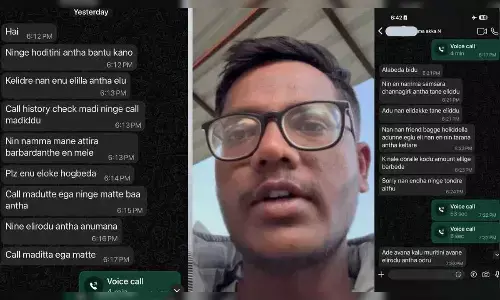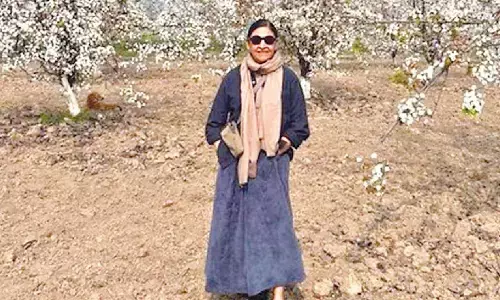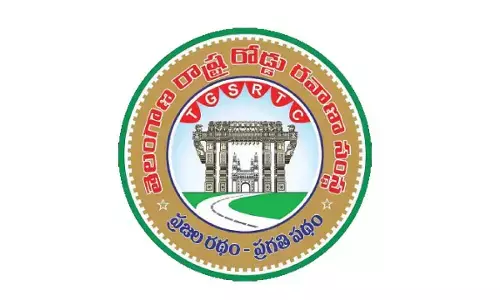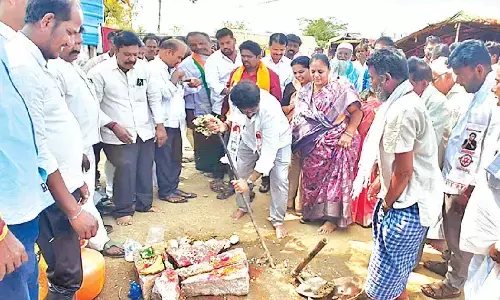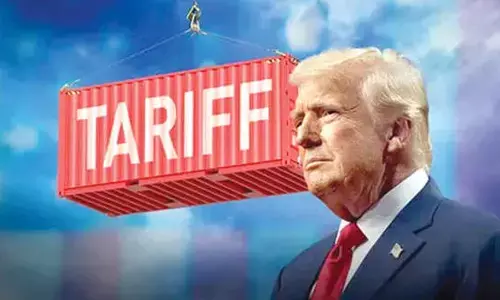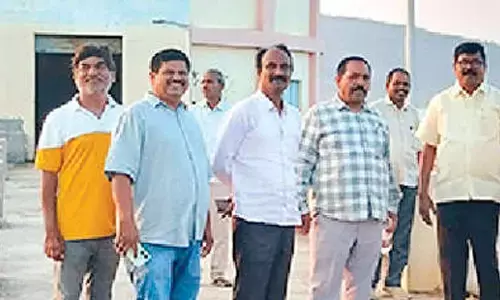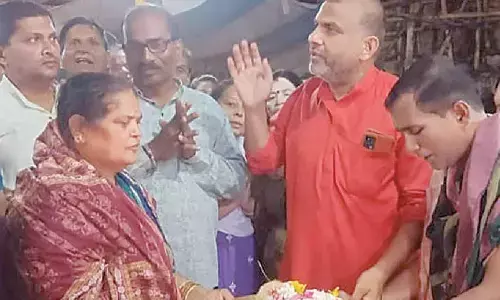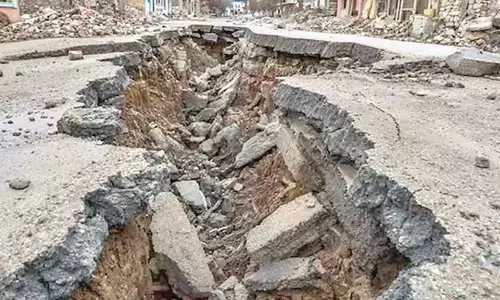Can Centre go ahead without Assembly consent?

Formation of Telangana State: Can Centre Go Ahead Without Assembly Consent?. Successive governments as well as the Congress High Command in later years failed to bestow the necessary serious attention in monitoring the implementation of Constitutional Special Provisions as well as Gentlemen's Agreement and the Six-Point Formula.
Successive governments as well as the Congress High Command in later years failed to bestow the necessary serious attention in monitoring the implementation of Constitutional Special Provisions as well as Gentlemen's Agreement and the Six-Point Formula.
.jpg) Article 3 indicates the procedure to be followed in formation of a new State, but does not spell out the conditions under which it is to be undertaken. The framers of the Constitution would have assumed that the initiative would come from the people of the areas comprising the State and they would welcome it.
Article 3 indicates the procedure to be followed in formation of a new State, but does not spell out the conditions under which it is to be undertaken. The framers of the Constitution would have assumed that the initiative would come from the people of the areas comprising the State and they would welcome it.
The 'residuary' Andhra Pradesh that would result as per the proposals is virtually a new State, being created against the expressed feelings of all the concerned areas. If a Bill is placed before the State Legislature for this purpose and it is strongly opposed by those areas, could the Center go ahead and pass the bill? Does the Constitution expressly provide absolute power to Parliament - i.e. both the Houses and the President - to ignore such opposition? In that context would the Apex Court entertain any PIL or refuse on the ground stating that the Center has such absolute power?
The pernicious long-term consequences on Center-State relations can be easily visualized and cannot be ignored. For example, a State comprising northern districts including Chennai of Tamilnadu, as demanded by Vanniyars, can be created and the 'residuary' Tamilnadu will have to go in quest of a new Capital.
In S R Bommai's case the Supreme Court stepped in to discuss the justiciability of Proclamation under Article 356. Is this not the time for the Supreme Court to think of such directives for Article 3?
What is the political situation in Andhra Pradesh today?
The Congress Working Committee in its resolution of July 30, 2013 refers to 'matters relating to safety and security of all residents in all the three regions and the guarantee of fundamental rights of all residents to be taken care of in the process of bifurcation’.
This is included in the terms of reference to the Group of Ministers. No such provisions were thought of since 1950 in Andhra Pradesh and in the creation of other new States.
In fact, the UPA at the Center and the Congress in the State since 2004 have led the State, from bad to worse, till now by their policies - or absence of policies - and project it would be the worst in days to come, by what they propose to do now. Is this the proper time to take up the irreversible process of bifurcation?
Congressmen in Telangana, off and on for a long time, have been asking for a separate Congress Committee for Telangana. It is purely an internal affair of the party (it does not need the support of other parties).
It has absolutely no effect on the lives of the people.
Yet the Congress ignores it, but is hell bent now on bifurcation of the State (Mumbai in Maharashtra has a separate Pradesh Congress Committee since 1920).
A legitimate question that can be raised is: Should Telangana be forced to continue with the status quo?
Nehru in 1955-56 and Indira between 1969 and 1973 were clear in their minds as to the measures to be taken and took
initiative in making the leaders of Andhra and Telangana sit together frequently and slowly arrive at a solution with the involvement of the Central Government.
Successive governments as well as the Congress High Command in later years failed to bestow the necessary serious attention in monitoring the implementation of Constitutional Special Provisions as well as Gentlemen's Agreement and the Six-Point Formula. UPA I & II i.e. Congress, for long lacked a vision and a policy and allowed, nay, encouraged the situation to deteriorate for the reasons which reason cannot reason.
It is now hell-bent upon proceeding at breakneck speed to effect irreversible process of bifurcation just on the eve of General Elections in 2014, which is actually a relevant matter for consideration by after the General Elections.
The Central government in the first instance should publish a detailed White Paper explaining in perspective, the background of these provisions, how effectively they were implemented. It ought to take note also of other arrangements/institutions like the Western Odisha Development Council, Leh Development Council etc.
Secondly, a Commission to evaluate the impact of the planned development so far in reducing intra-state and inter-state inequalities needs to be appointed.
In light of such evaluation, a future comprehensive development plan should be formulated within a year to be implemented in phases with proper monitoring.
Last, but not least, is the necessity to have a Standing Committee in the Council of States i.e. Rajya Sabha to report annually on the working of the Constitutional Special Provisions for different States for taking necessary action in time.


